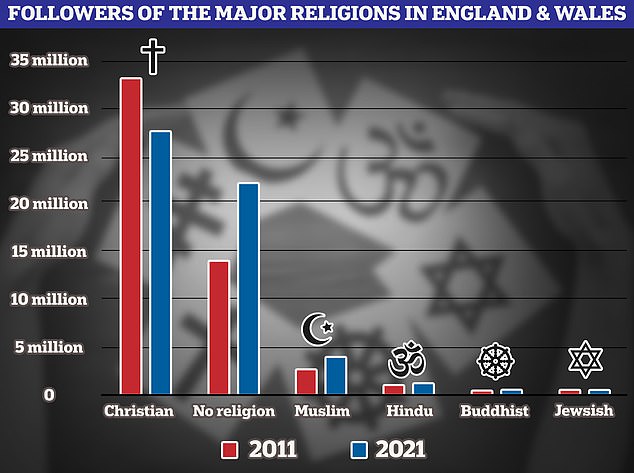
Mothers’ Role Cited in Britain’s Shift Toward First Atheist Era, Study Suggests
Britain’s First "Atheist Age" Linked to Declining Religious Influence of Mothers
Britain is now in its first "atheist age," with non-believers outnumbering those who believe in God. Researchers from the Universities of Münster and Berlin attribute this societal shift to fading religious traditions within families, particularly the declining role of mothers in passing down faith. Their global study highlights how secularization and changing parental attitudes are reshaping generational beliefs.

Religious affiliation in England and Wales dropped to 46% in 2021, down from 59% in 2011 (Source: 2021 Census)
The Role of Families—Especially Mothers
The study surveyed families in Germany, Finland, Italy, Canada, and Hungary—countries undergoing secularization. Key factors for transmitting religion include cultivating a religious identity (e.g., church attendance, sharing faith on social media), engaging in joint practices like prayer, and both parents sharing the same denomination. However, mothers emerged as central: their involvement in religious activities significantly influences whether children adopt faith.
"Mothers play the most critical role in religious socialization," researchers noted. Yet, as parents grow less religious themselves, they either pass on secular views or let children choose freely. This trend is amplified by societal shifts toward liberalism, where values like charity and tolerance are increasingly seen as cultural—not religious—virtues.

Joint religious practices, such as attending services, strengthen intergenerational faith transmission
Adolescence: A Turning Point
Religious identity is often solidified during adolescence, as teens reflect on family traditions. Today’s youth increasingly distance themselves from structured religion, embracing spirituality or secularism. In the U.S., church membership fell below 50% in 2021, a historic low. Similarly, Eastern Germany—a highly secular region—exemplifies how non-religiosity becomes normative in liberal societies.
"Once societies prioritize secular norms, parents struggle to justify raising children religiously," explains Prof. Olaf Müller of Humboldt University Berlin.
A Global Shift
The decline isn’t confined to Britain. Countries like Italy and Hungary show similar patterns, though at varying paces. Even when religion is transmitted, it often transforms—modern youth may engage in community events rather than traditional worship.

U.S. church membership dropped below 50% in 2021 (Gallup)
Historical Context
Christianity’s roots in Britain date to the 1st century, but its influence has waned post-Enlightenment. The study’s forthcoming book, Families and Religion: Dynamics of Transmission Across Generations, explores how political and social changes accelerate this decline.

St. Augustine’s 597 AD mission cemented Christianity’s ties to British monarchy
Conclusion
As secular values dominate, the shift toward non-religiosity appears irreversible. The study underscores that faith’s survival hinges on familial transmission—yet with mothers less engaged and societies more liberal, Britain’s "atheist age" may be just the beginning.
Families and Religion publishes in August 2023, offering deeper insights into this global transformation.


